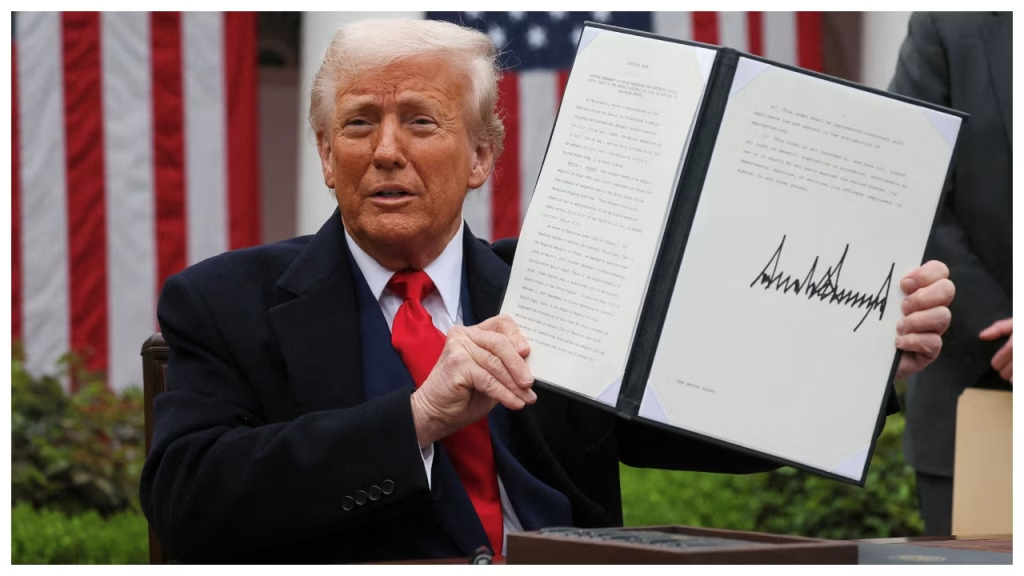In what could be a sweeping shift in American foreign policy, a leaked draft executive order from the White House proposes a drastic reduction in the United States’ diplomatic presence in Africa, alongside the elimination of key State Department offices focused on climate change, democracy, and human rights.
The draft order, reportedly obtained by AFP, outlines plans for a “full structural reorganization” of the State Department, with a deadline set for October 1.
The reorganization aims to “streamline mission delivery, project American strength abroad, cut waste, fraud, abuse, and align the Department with an America First Strategic Doctrine.” While no official statement has confirmed the draft’s authenticity, its contents are already drawing significant attention and concern.

A major highlight of the plan is the proposed dismantling of the Africa Bureau, which currently oversees U.S. diplomatic relations across the continent. In its place, a new “Special Envoy Office for African Affairs” would be established.
Unlike traditional diplomatic channels, this office would report directly to the White House’s National Security Council, bypassing the State Department altogether.
Additionally, the order recommends the closure of all “non-essential” embassies and consulates in Sub-Saharan Africa, replacing them with a limited number of “targeted, mission-driven deployments” under the special envoy’s supervision.

Despite the gravity of the proposed changes, Secretary of State Marco Rubio dismissed the report in a statement on social media, calling it “fake news.” Rubio claimed that The New York Times, which first reported the story, had “fallen victim to another hoax.” However, AFP has confirmed viewing a copy of the draft order, lending credibility to the claims.
READ ALSO: Coast-to-Coast Protest: Americans Rally Against Trump’s Hardline Policies
The proposal emerges as part of a broader pattern under President Donald Trump’s administration, which has often questioned the value of long-standing international alliances and U.S. soft power programs.
These include development aid, diplomatic missions, and initiatives that promote democratic governance and environmental cooperation. Previous leaks have suggested that the State Department could face a budget cut of up to 50% under Trump’s direction—further supporting concerns that American diplomacy is facing an internal overhaul.

In addition to the Africa reshuffle, the draft calls for the elimination of State Department offices tasked with addressing global climate change and defending human rights. These cuts would mark a sharp departure from decades of bipartisan efforts to promote U.S. values abroad through diplomacy and international cooperation.
Even America’s closest allies appear to be affected by this new doctrine. The U.S. diplomatic team in Canada—one of Washington’s oldest and most strategic allies—would be significantly downsized, according to the draft.
President Trump has previously joked about annexing Canada as the “51st state,” but the proposed downsizing of the embassy in Ottawa suggests a shift away from even traditional partnerships.

If enacted, the draft executive order would represent one of the most profound restructurings of U.S. diplomacy in modern history. Critics warn that slashing diplomatic ties in key regions and abandoning global leadership roles on issues like human rights and climate change could erode America’s influence on the world stage, leaving a vacuum that other powers may quickly fill.
For now, the draft remains under consideration, and no formal announcement has been made. Still, the mere suggestion of such sweeping changes has already sparked debate about the future of American diplomacy and its role in a rapidly shifting global landscape.
Discover more from Scoop Hub
Subscribe to get the latest posts sent to your email.

